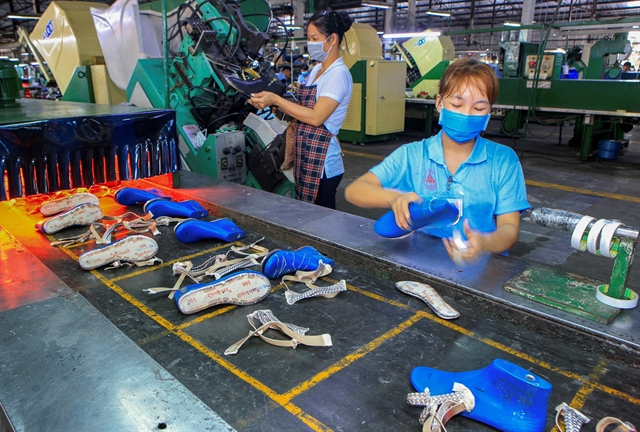 Economy
Economy


|
| Workers at a factory in Bình Dương Province’s Sóng Thần Industrial Park. VNA/VNS Photo |
HCM CITY — Japan has been investing steadily in the southern key economic zone so far this year, according to Government data.
In the first two months, Bình Dương Province received US$400 million, according to the provincial Department of Planning and Investment.
The province has more than 3,900 foreign projects with a total investment of $35.8 billion from 65 countries and territories, but Japan is the largest investor with more than $5.7 billion mainly in the manufacturing of electronic components, electronic circuits and chips, iron and steel, cars, and supporting industries.
The chairman of its People’s Committee, Nguyễn Hoàng Thao, said the province is speeding up major transport infrastructure projects as part of efforts to attract investment.
Ring roads No 3 and 4, the HCM City- Thủ Dầu Một- Chơn Thành Expressway and the eastern branch of the HCM Road are among the major projects.
Japan is the third-largest investor in neighbouring Đồng Nai Province with nearly $4.9 billion mainly in footwear, textiles, wooden products, and electronic components manufacturing and supporting industries.
Bình Phước Province has emerged as an attractive destination for foreign investors, including Japanese.
Trần Tuệ Hiền, chairwoman of its People’s Committee, said the province offers the most favourable conditions for foreign investors as it seeks to solicit investment.
It hopes to attract more large Japanese enterprises as well as small and medium-sized ones, she said.
The province has 13 industrial parks with a total area of 4,680 hectares and eight industrial clusters with an area of 380ha.
It has sought approval from the Government to expand them to a total of 8,000ha.
Việt Nam is acknowledged as one of the most attractive destinations for foreign investment following its successful management of the COVID-19 pandemic while its free trade deals are an added inducement, according to economists. — VNS